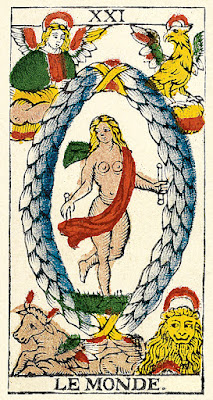On September 13, William Wright posted "Deseret Book vs. Deseret's Book" -- deseret being a word from the Book of Mormon, supposed to mean "honeybee," and widely used in Mormon-related branding. At the end of the post he mentions that since I've begun engaging with his blog, the synchronicity fairies seem to have taken an interest in him. (Many such cases!)
Lastly, whatever WJT has must be contagious, because I have Shark Tank running in the background right now and as I am typing that last sentence, I look up at the TV and the first thing I see is an entrepreneur wearing a shirt with "Bee" written across the top as part their logo (Bee as the obvious tie to Deseret). The business is "Bee Sweet Lemonade". So, right as I am typing of Deseret being associated with the commercial arm of the LDS church, there is a Bee-affiliated business trying to raise capital on Shark Tank. I don't know. Seems to tie right into this juice/ nectar thing, also.
Mr. Wright's earlier (August 30) post on Deseret was "In our lovely Deseret: Adding meaning to this name, and Brigham's use of it." This is a reference to a reference to the old Mormon song which begins "In our lovely Deseret / Where the Saints of God have met" -- Deseret being the original name the Mormons chose for what later became the State of Utah. When I heard this song as a young child, not knowing the historical meaning of Deseret, I came up with my own interpretation. I knew that hymns sometimes prolonged Israel to a trisyllabic Iz-rye-ell to fit the meter, so I figured this was a similar poetic trisyllabification of the word desert. (From the narrow desert to the expanded deseret, so to speak.) The Saints had in fact met in a lovely desert, so this made perfect sense to me.
Much later, when I was a missionary stationed in Deseret itself, Alex Carmichael and I wrote some new verses of our own. Here's the one I remember:
In our lovely Deseret
Where the Saints of God have met
There is no one who drinks alcohol or tea
No tobacco do they smoke
Yes, a few of them drink Coke
But it doesn't mention that in D&C
Deseret must have subconsciously dredged my childhood misapprehension back up from my memory, because when I read the word lemonade in Mr. Wright's post, I mentally pronounced it as if it were French (like le monade, if monade were a masculine noun) and thought of it as a poetic trisyllabification of le monde, "the world." The beginnings of lyrics even began to appear in my mind: "In our lovely le-mo-nade / Where have met the Saints of God . . . ."
The earlier Deseret post, introducing the idea that Deseret might me a woman's name rather than a common noun meaning "honeybee," quoted this line from The Words of the Faithful:
Grey Izilba would often drape herself naked in a cloak of honey bees, sweet and yet full of sting
This striking image occurs quite early in the book and is one of the few things I remember from my abortive attempt to read it. It associates Deseret and honeybees with a naked woman. Le Monde is also the name given to an image of a naked woman:
"Sweet and yet full of sting" -- isn't that an apt description of the world in which we live? The combination of sweetness and sting makes the honeybee a symbolic cousin to the rose. A rosary is etymologically a garland of roses, and only the subtlest of phonological distinctions differentiates beads -- representing Mysteries both Joyful and Sorrowful -- from sweet-but-stingful bees.
Mr. Wright mentioned that Bee Sweet Lemonade "seems to tie right into this juice/ nectar thing," referring to his September 9 post "Ancient Juice as something that will be brought with the Sawtooth Stone." The sour-but-sweet nature of lemonade does seen to tie in with that "juice" -- which he says has "something to do with bees and honey" but also identifies with the "bitter cup" drunk by Jesus.
This brings up the old Mormon question of whether the fruit of the Tree of Life is bitter, sweet, or both, as discussed in my post November 2022 post "Ave Maria." C'est une symphonie douce-amère, c'est le mon(a)de.




1 comment:
I ended this post with a reference to the Verve song “Bittersweet Symphony.” The next day, I followed a trail of links to a video of Patrice O’Neal explaining the music of the Cranberries, which unexpectedly begins with him singing a few lines of “Bittersweet Symphony.”
https://youtu.be/8vvHeKUK-9g?si=ZUmWiColRarI_3vb
Post a Comment